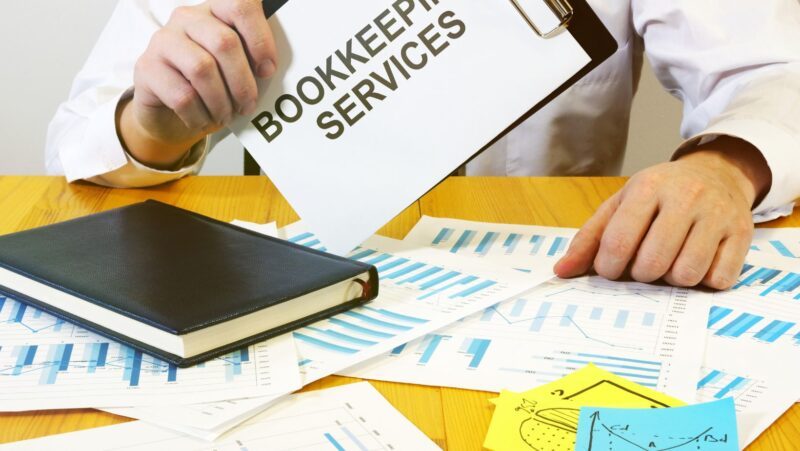Denmark is consistently ranked among the most business-friendly countries in the world. Transparent institutions, advanced digital tools, and a stable economy attract many foreign entrepreneurs who choose to establish their companies here. However, for those unfamiliar with local laws and procedures, Danish bookkeeping can seem both strict and complex. Understanding the system is essential to running a compliant and successful business.
Starting A Business As A Foreigner
Foreigners can set up different types of businesses in Denmark, but the most common structures are:
- Sole proprietorship (Enkeltmandsvirksomhed) – easy to register, requires no share capital. Suitable for freelancers or small business owners. However, the owner is personally liable for debts and obligations.
- Private limited company (ApS) – requires a minimum share capital of 40,000 DKK. It provides limited liability and is widely used by small and medium-sized enterprises.
- Branch of a foreign company – a solution for entrepreneurs who want to expand their existing business into Denmark.
Each structure comes with its own bookkeeping requirements, with ApS and larger entities being subject to full accounting and annual financial reporting.
Vat And Tax Obligations
Foreign business owners must quickly become familiar with Denmark’s tax system, which is efficient but leaves little room for error:
- VAT (Moms) – The standard rate is 25%. Registration is mandatory once turnover exceeds 50,000 DKK in a 12-month period. VAT returns must be filed electronically, usually quarterly.
- Corporate tax (CIT) – A flat 22% rate applies to companies.
- Income tax for individuals – Denmark uses a progressive system, combining state and municipal taxes. Effective rates may reach 37–42%.
Unlike in many countries, social security contributions are minimal. Most welfare benefits are financed directly from tax revenues, simplifying payroll bookkeeping.
Digital Bookkeeping For Foreigners
Denmark is a pioneer in digital administration, and this strongly affects bookkeeping. Foreigners must obtain a MitID (digital ID) to interact with authorities and access the TastSelv portal, the central platform for tax reporting.
Through TastSelv, business owners can:
- register for VAT,
- submit periodic tax reports,
- pay outstanding taxes online,
- communicate directly with the Danish Tax Agency (SKAT).
The system is user-friendly, but foreigners often encounter language barriers as much of the communication is in Danish.
Annual Financial Statements
Companies such as ApS and A/S must prepare annual financial statements under the Danish Financial Statements Act. These must be submitted to the Danish Business Authority (Erhvervsstyrelsen) and are publicly available.This level of transparency is unusual for many foreigners but is an important part of the Danish business culture, which values openness and trust.
Annual reports usually include a balance sheet, profit and loss statement, and notes. For small companies, simplified formats are available, but the obligation to publish remains.
The Role Of Accountants And Advisors
For foreigners, working with a local accounting firm in Denmark is often not just an option but a necessity. Professional accountants—such as proaktif.dk/denmark-bookkeeping.
- handle VAT registration and reporting,
- prepare financial statements,
- ensure compliance with deadlines,
- provide advice on tax planning and payroll,
- act as intermediaries in communication with Danish authorities.
Key Challenges For Foreigners
Running a business in Denmark as a foreigner comes with unique obstacles:
- Language barrier – Although some systems offer English versions, most official documents and correspondence are in Danish.
- Strict deadlines – Late VAT returns or missing financial statements quickly result in penalties.
- Transparency culture – The fact that financial statements are public can be surprising for entrepreneurs from countries with more privacy.
- High taxes – Denmark’s progressive system can be challenging for newcomers used to lower rates.
Being aware of these challenges makes it easier to adapt and plan ahead.
Why Denmark Remains Attractive
Despite the difficulties, Denmark offers significant advantages:
- a stable and predictable legal environment,
- minimal bureaucracy thanks to digital tools,
- strong protection for companies and employees,
- high credibility with international partners.
For foreigners, the Danish system may appear strict, but once understood, it provides clarity and security. Bookkeeping becomes less about navigating bureaucracy and more about ensuring sustainable growth.
Bookkeeping in Denmark for foreigners requires discipline, attention to detail, and often professional assistance. From VAT registration and tax compliance to annual reporting, the system is highly digital and transparent but unforgiving to those who miss deadlines.

